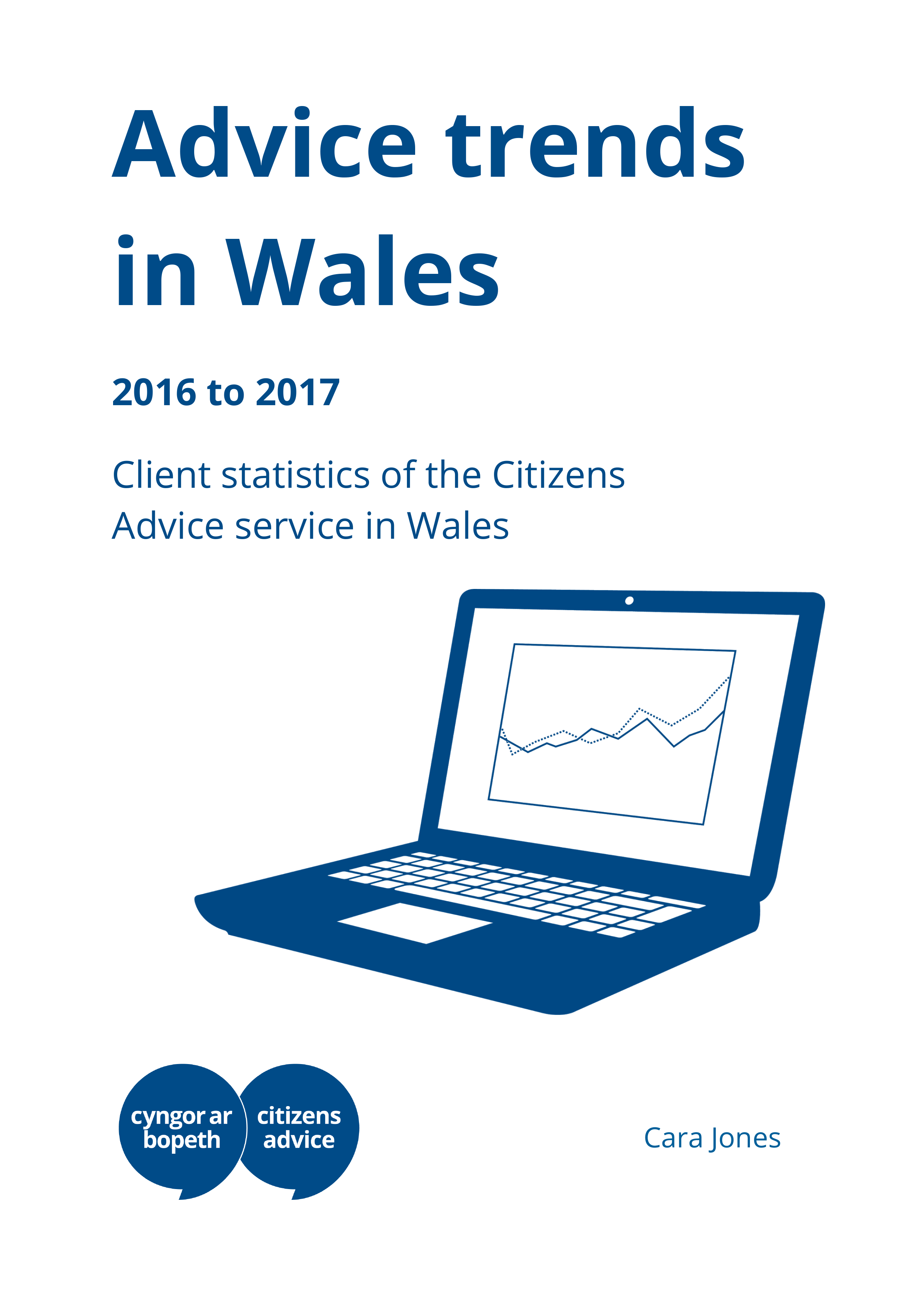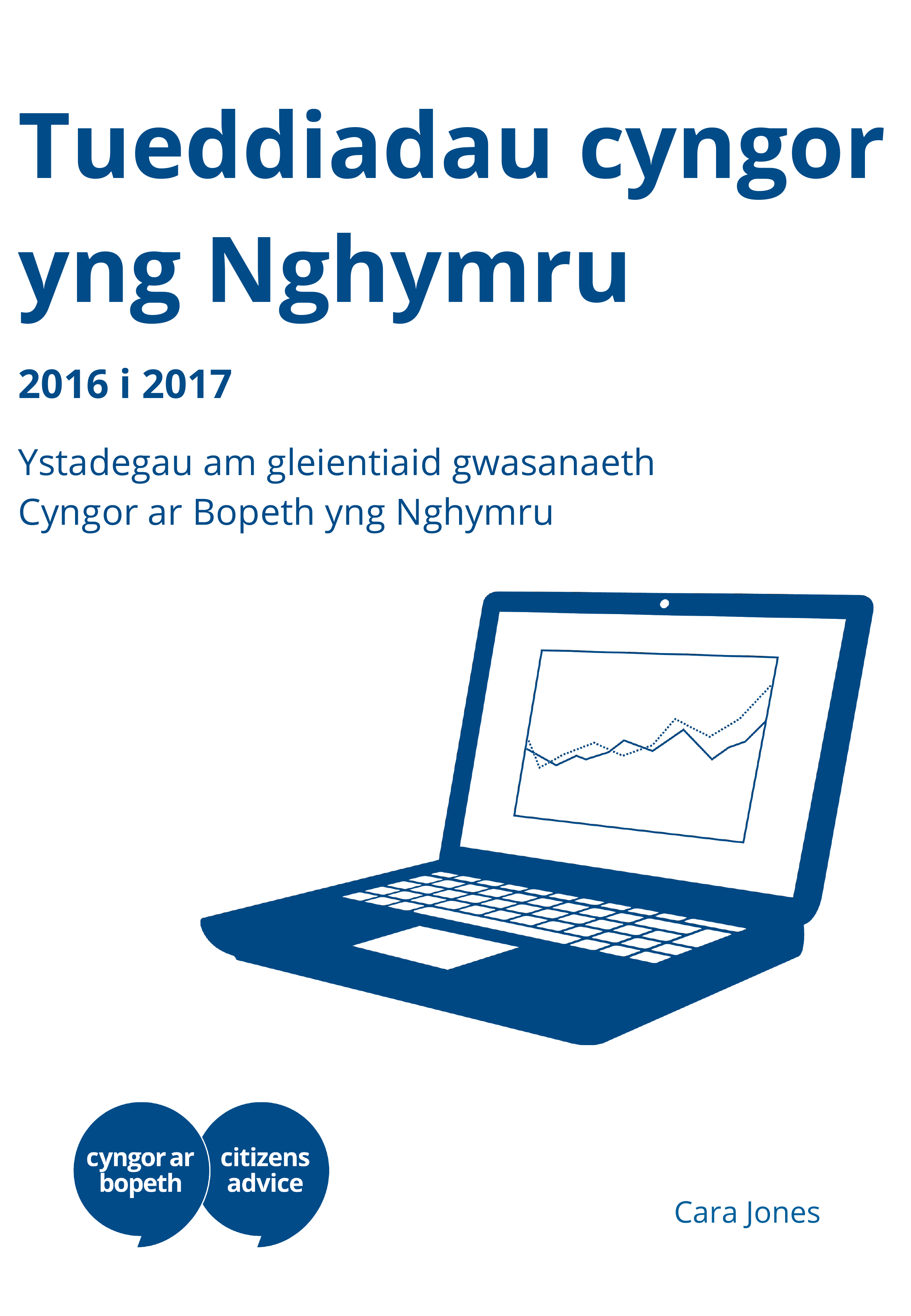Advice Trends in Wales 2016-17
Advice Trends in Wales 2016 to 2017 [ 1.2 mb]

During 2016 to 2017 we helped 114,282 people with 436,254 problems. This is an increase on 2015 to 2016 of 4% more people and 4% more problems. On average, people come to us with 3.8 different problems. This figure is unchanged from 2015 to 2016.
We helped 54,879 people with 182,457 benefits related problems. This is a 10% increase in the number of people (49,858) and a 12% increase on the number of problems (163,417) since 2015 to 2016. Of all benefits related problems in 2016 to 2017 one third of them were related to Personal Independence Payment (PIP).
Since 2015-2016 there has been a 38% increase in the number of people who need our support with PIP. The explanation for this increase could be that more and more people currently in receipt of Disability Living Allowance (DLA) are being invited to apply for PIP as the wider rollout of this, newer, benefit continues.
Tueddiadau cyngor yng Nghymru 2016 i 2017 [ 1.7 mb]
 Yn ystod 2016 i 2017 fe wnaethom helpu 114,282 o bobl gyda 436,254 o broblemau, sef 4% yn fwy o bobl a 4% yn fwy o broblemau nag yn ystod 2015 i 2016. Ar gyfartaledd, daeth pobl atom gyda 3.8 problem wahanol. Mae’r ffigur hwn yr un fath â 2015 i 2016.
Yn ystod 2016 i 2017 fe wnaethom helpu 114,282 o bobl gyda 436,254 o broblemau, sef 4% yn fwy o bobl a 4% yn fwy o broblemau nag yn ystod 2015 i 2016. Ar gyfartaledd, daeth pobl atom gyda 3.8 problem wahanol. Mae’r ffigur hwn yr un fath â 2015 i 2016.
Fe wnaethom helpu 54,879 o bobl gyda 182,457 o broblemau’n ymwneud â budd-daliadau, sef cynnydd o 10% yn nifer y bobl (49,858) a chynnydd o 12% yn nifer y problemau (163,417) ers 2015 i 2016. Roedd traean o’r holl broblemau’n ymwneud â budd-daliadau yn 2016 i 2017 yn gysylltiedig â’r Taliad Annibyniaeth Personol.
Ers 2015-2016, bu cynnydd o 38% yn nifer y bobl sydd angen cymorth gennym ar gyfer y Taliad Annibyniaeth Personol. Y rheswm posibl am hyn yw bod mwy o bobl sy’n derbyn Lwfans Byw i’r Anabl ar hyn o bryd yn cael cyfle i wneud cais am Daliad Annibyniaeth Personol wrth i’r budd-dal newydd hwn barhau i gael ei gyflwyno’n ehangach.
Mae’r system o ddyfarnu Taliad Annibyniaeth Personol yn wahanol i’r system ar gyfer Lwfans Byw i’r Anabl. Mae Taliad Annibyniaeth Personol yn seiliedig ar sut mae cyflwr unigolyn yn effeithio arno, nid ar y cyflwr sydd arno.

